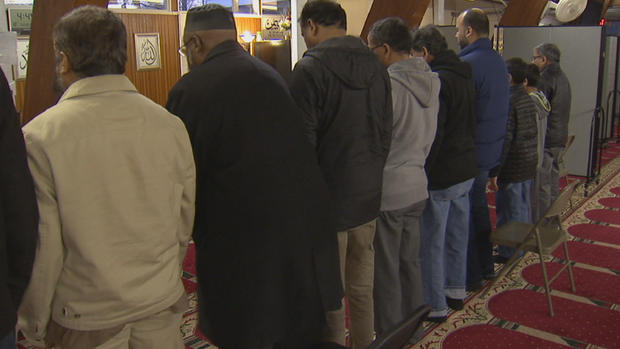
RNA - Post-election fears and anxieties of many Muslims have become a reality in the wake of the 2016 presidential election.
Jehan Hakim, an SF State alumnus, recalled a horrifying incident involving her friend, a young immigrant woman, whose head scarf was pulled off her head and was then chased through the Tenderloin.
“She fled her home country to seek the liberties that we are said to enjoy being Americans,” Hakim said.
According to Hakim, this was a life changing incident for the woman, who no longer leaves her home unless she needs to, and has even gone as far as changing from working fulltime to parttime as a result.
Anti-Islamic hate crimes have increased in the Bay Area since the presidential election of Donald Trump. Many Muslims are in disbelief that these occurrences are happening in their own city, especially in a city known for its diversity.
“It is sad, disheartening and shocking all together, especially being my home city,” Hakim said. “It’s quite unfortunate.”
Like some Americans, many Muslims were shocked and horrified that their country elected someone like Trump.
Similar hate crimes involving Muslim women like the incident at San Jose State University campus in which a young Muslim woman was attacked and choked with her headscarf have left a lot of Muslim students worried. Muslim women who wear the hijab, an Islamic head scarf, especially feel unsafe because they are easy identifiable targets.
“My initial reaction was fear,” said Yasra Syed, president of the Muslim Woman Student Association on campus. “It’s scary to see something like that occur in the Bay Area, all I could think was it could’ve been a loved one or even me. The attacker doesn’t look at anything but the fact that I would have a head covering.”
According to Robert McCaw, director of government affairs for the Council on American Islamic Relations, a non-profit Muslim civil rights organization, there has been an increase in hate incidents since the primaries began in 2015. Reports of incidents went from once a week to about three times a week.
The FBI released a report finding a 67 percent increase in anti-Muslim intimidations in the last year.The Southern Poverty Law Center found that since the election there have been 437 reported incidents between Nov. 9 and Nov. 14.
The Muslim Student Association at SF State has taken precautions following the rise of hate crimes against Muslims following the results of the election. It is implementing a buddy system, encouraging Muslim women to carry pepper spray and take self defense classes.
According to Syed, the buddy system is still being developed, but it will be the main form of safety for Muslims on campus. The buddy system involves a group chat via Whatsapp that would be open for any Muslims on campus to use if they feel they need someone to escort them to and from night classes, back to their cars or across campus in the evening.
The MSA is also planning to hold fundraisers to raise money to provide pepper spray to Muslim women on campus so they can protect themselves in the event of an attack or assault.
“We want our Muslim sisters to feel safe on campus and off of it,” Syed said. “If having a defense item such as pepper spray with them to make them feel safe, then so be it.”
At the last MSA and MWSA meeting, Syed brought up the hopes of having a self-defense instructor come to campus to hold workshops for Muslim women on campus.
“I was hoping girls can be well armed in case they ever have to come across a situation where they need to defend themselves,” Syed said. “Times are difficult, and it’s sad to think like this, but I think it’s wise to be smart and invest in yourself.”
“I was furious,” said Ahmed Abdelhalim, a political science major. “ I don’t know how we can nominate a misogynist, a bigot, a racist. I was really disappointed.Just being disappointed in America and upset that there’s so much hate in people’s hearts.”
Despite the recent attacks on college campuses, young Muslim women like Syed are not allowing fear to get the best of them or change their beliefs.
“I haven’t ever taken current events as a way to reconsider my ability to wear hijab,” Syed said. “To me, my hijab is me, it’s who I am and who I’ve come to be. It’s my identity, and I don’t think anything can ever change my views on it.”
847/940